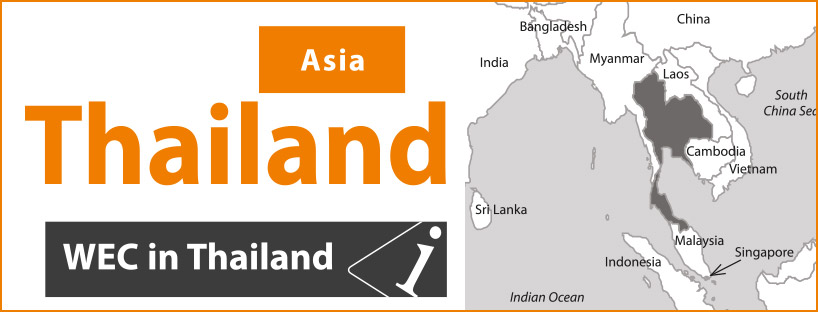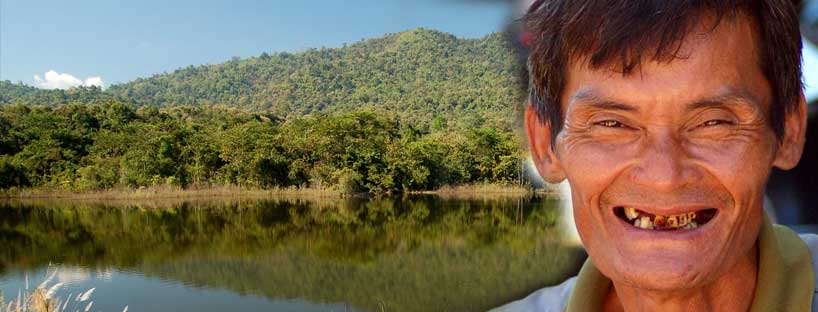WEC In Thailand
OUR PURPOSE
- To bring the Gospel of our Lord Jesus Christ to the remaining unevangelized peoples with the utmost urgency.
- To plant churches with empowered leadership.
- To inspire, mobilize and train for mission.
OUR VISION
“To see vibrant churches established in every sub-district within the five provinces where we work, and to see churches in Thailand mobilized for mission”.
URGENT NEEDS
WEC Thailand has committed to recruiting for and placing several new church planting teams in unreached areas within the next 5 years. Will you help us? Opportunities
HOW DO I JOIN?
Contact a WEC Branch in your area for details of their candidate orientation course. Following successful completion of candidate orientation, the Branch office will release new workers to their respective fields of service. (Contact a WEC Branch near you.)
WEC began work in 1947 with four missionaries, and since then there has been a steady influx of workers. Currently there are between 35-40 workers from around the world serving in six different provinces: Tak, Sukhothai, Kamphaengphet, Phitsanulok, Chiangmai, as well as the capital Bangkok.
Initially, the only Christians in the northern provinces were some believers from Burma who had settled near the border. The early years saw little response, but now we are witnessing a new openness to the Gospel, with people turning to Jesus regularly.”
WEC Thailand has used various methods of outreach over the years. In the early years, leprosy outreach was established. Literature and films have played an important role, as have radio and cassette work. Today, evangelism and church planting are done in partnership with the emerging Thai and Karen leadership.
In 1999, WEC helped co-found the Grace International School in Chiangmai, and has since committed to the ministry of educating missionary children.
In 2014 WEC Thailand made the decision to embrace Missional Business as a strategy to compliment our church planting strategies. Together they will work towards transforming communities.

Thailand Information
Thailand — ‘the land of the free’,, is a constitutional monarchy. The predominant religion is Buddhism, mixed with Brahmanism and animism. Although the Thai are proud of their religion, and most young men spend some time in the Buddhist priesthood, many are Buddhist only by name.
For many, Buddhism is a matter of custom and tradition which they practise in order to earn a good reincarnation, but in everyday life they are more likely to turn to superstition, astrology and the spirit world. Buddhists make up 92 per cent of the population and a further four per cent are Muslims. About 0.6 per cent are evangelical Christians. The number of Protestants in Thailand (now about 450,000) has doubled 5 times since 1950, so we have witnessed real growth.”
The Thai Church
WEC’s ministry in Thailand is focused on church planting. Evangelism, church nurture, leadership training and other ministries, including missional business, contribute to the overall aim of planting local churches.
WEC Thailand is a founding member of the Evangelical Fellowship of Thailand, and values the cooperation between the 200 member organisations across the country.
In the Central provinces, more than 40 churches and groups, linked together as the Bonds of Fellowship Churches have been established mostly with indigenous leadership. WEC Thailand also partners together with the Vision Thailand Christian Fellowship church network in the Bangkok area. There, a church planting school for emerging local leaders has led to small groups being established in many parts of the country.

The Karen People
Along with the work among the Thai, WEC Thailand works with the S’gaw Karen minority. About 120,000 Karen people live in isolated villages in the mountains of Tak Province. Although they are animistic, the Karen are responsive to the gospel. Currently, there are 30 churches and groups.
In her book At the Scent of Water, published by CLC, Nancy Ashcraft tells the exciting story of the initial stages of this work.
